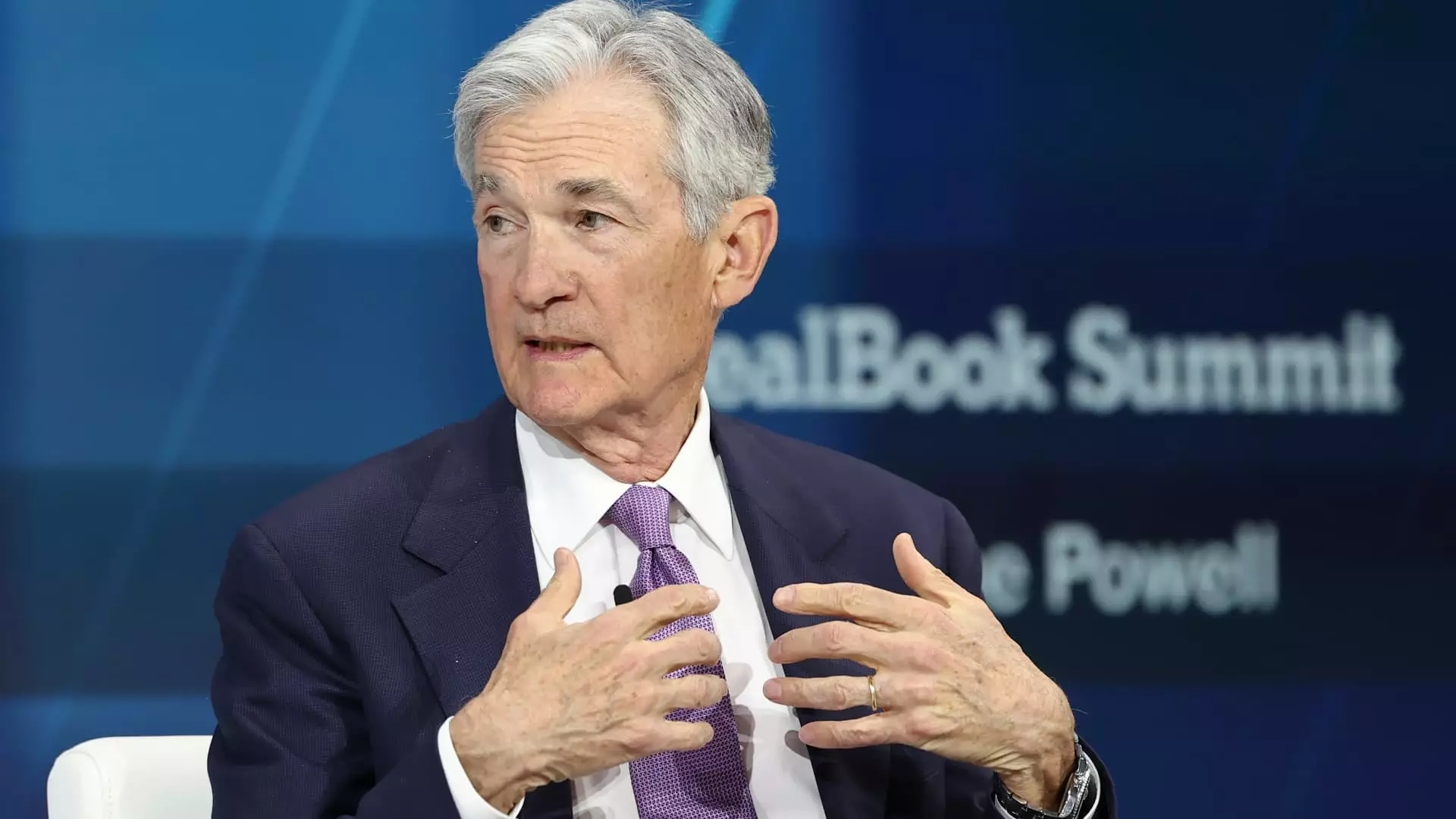Bitcoin, the leading cryptocurrency, has witnessed unprecedented fluctuations in its value since its inception, capturing the attention of both investors and analysts alike. Recently, the coin experienced a resurgence that many attribute, at least in part, to comments made by Federal Reserve Chair Jerome Powell. By comparing Bitcoin to gold rather than positioning it against traditional fiat currencies like the U.S. dollar, Powell inadvertently lent a degree of legitimacy to the cryptocurrency that further ignited its market performance.
During a recent interview at the DealBook Summit, Powell clarified his own non-ownership of Bitcoin and acknowledged the Federal Reserve’s limited capacity in regulating it. His assertion that Bitcoin operates more as a speculative asset—similar to gold—than as a dominant form of payment suggests a shift in understanding within traditional financial circles. This observation is crucial; it implies that cryptocurrencies like Bitcoin may find their niche in investment portfolios rather than in everyday transaction systems, a narrative that could significantly influence investor sentiment.
Powell’s remarks have resonated deeply within the cryptocurrency community. After the interview, Bitcoin saw a notable uptick, climbing 4% and surpassing the impressive mark of $103,000. Such reactions underscore a broader trend in which comments from influential figures can sway market dynamics—an instance of the so-called ‘Powell effect.’ Market strategist Joel Kruger from the LMAX Group underscored the significance of Powell’s endorsement, suggesting that likening Bitcoin to gold enhances its credibility and underscores its potential for further growth.
This juxtaposition of Bitcoin with gold rather than the dollar also reveals certain realities about the cryptocurrency market. With gold’s market size dwarfing Bitcoin’s by approximately tenfold, there remains considerable room for Bitcoin to expand. This viewpoint encourages speculative investment opportunities as Bitcoin continues to mature in the global financial landscape.
The timing of Powell’s comments coincides with a pivotal moment in U.S. politics—the aftermath of the presidential election. The election of Donald Trump as president-elect, who has made healing statements regarding cryptocurrencies, paralleled Bitcoin’s price surge. The ebbs and flows of Bitcoin’s price seem intricately tied to political developments and peer endorsements within financial governance frameworks, signaling that external influences are pivotal in steering public perception and market momentum.
The announcement of Trump’s intention to appoint Paul Atkins, a recognized crypto proponent, to lead the Securities and Exchange Commission (SEC) could herald a more favorable regulatory environment for cryptocurrencies. If Atkins succeeds in fostering crypto-friendly policies, it could sustain Bitcoin’s volatility on an upward trajectory. In contrast, the existing SEC chair, Gary Gensler, has adopted a more cautious approach towards digital currencies, potentially stalling market progression.
While Bitcoin is soaring, traditional assets like gold have largely stagnated since the election, although they remain on a gradual upward trend year-to-date. This contrasting performance brings to light potential shifting dynamics in how investors allocate their assets. Investors are increasingly seeking diversification, opting for cryptocurrencies amidst uncertainty in other asset classes.
As Bitcoin solidifies its status as a speculative asset akin to gold, the implications stretch beyond profits and losses. Investors now face ethical dilemmas and regulatory challenges as the cryptocurrency environment evolves. This dynamic will require heightened analytical approaches to understand risk versus reward in ways previously not considered in traditional financial assessments.
Powell’s remarks have undoubtedly contributed to a narrative that elevates Bitcoin above mere volatility, positioning it as a significant contender in the investment landscape. By framing Bitcoin within the context of gold rather than the dollar, a transformation occurs in understanding its role among both traditional and digital assets. Looking forward, the futures of Bitcoin and cryptocurrencies hinge not only on market whims and investor sentiment but also on the pivotal decisions made by regulatory institutions and influential leaders in the financial sector. The intersection of politics, regulation, and market dynamics will shape the cryptocurrency’s evolution as it navigates its path toward legitimacy within an ever-changing financial ecosystem.

